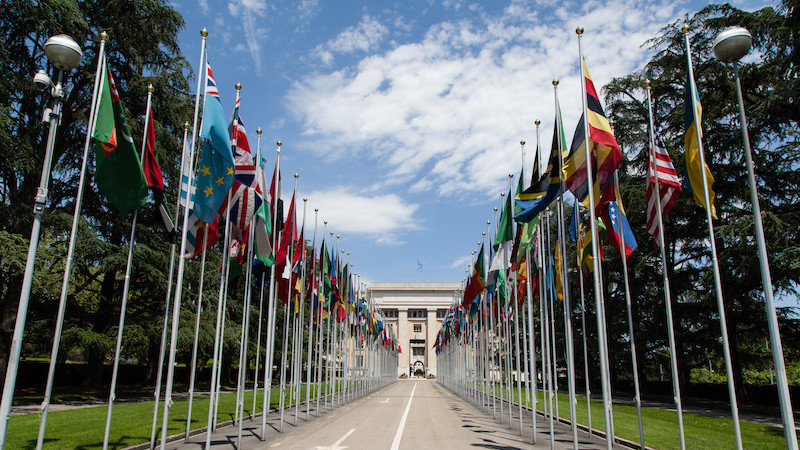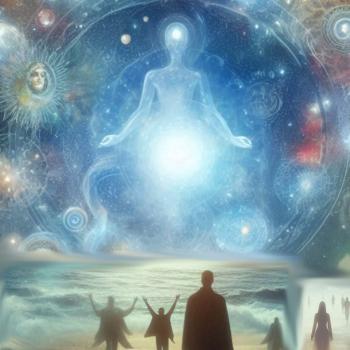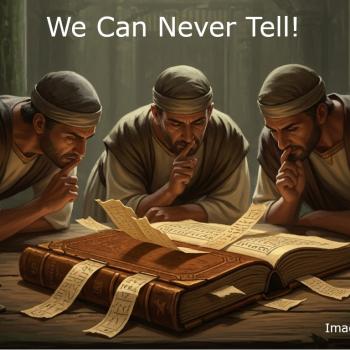Practical Spirituality series
And He said to him, “‘You shall love the Lord your God with all your heart, and with all your soul, and with all your mind.’ This is the great and foremost commandment. The second is like it, ‘You shall love your neighbor as yourself.’ On these two commandments depend the whole Law and the Prophets.” – Matthew 22:37-40 (NASB)
What are progressives?
It isn’t up to me to define; I would get endless complaints because none of us are alike. I even hate labels because they’re misleading.
Progressive religion has nothing to do with politics. Progressive religious thought comes from a mixed bag of forward-thinking individuals in most denominations who try to understand Biblical writings in depth, getting at the core of ethics, spiritually growing, and applying them to today’s changing culture and situations. It isn’t about change just to create change, as some assert. Being open to change, possibly.

Traditions vary by place. Image by Tom Page, CC 2.0, used in various places on the Internet
God doesn’t change. God is love (1 John 4:7-21). The basic nature of people changes only through experience and guidance (spirituality). Situations change and we have to be prepared to apply the core ethic of love given to us by God.
I can say this having been, over the last 70 years, a fundamentalist, an evangelical, a mainstream Christian, and having found them all lacking to some degree. I see the flaws each of us have, including my own.
It’s clear to me that there is a struggle between how we are now and creating the kingdom. I see people fleeing churches for the last 150 years because religion doesn’t measure up to the mission God set before us. This isn’t my judgment, it’s Biblical, and I write extensively about it. I insist on purity of the faith, harming no one, regardless of tradition.
A recent post declared, “Progressive ethics are always in flux; they are ever searching for a new, deeper sense of morality that ebbs and flows with the ideological whims of the broader culture. What I mean by that is simply that the only absolute truth with which they approach the topic of ethics is that there is no absolute truth.”
The above statement about progressives struck me immediately as being nowhere near the truth. My post (this one) is for progressives. I won’t mention who wrote the other post since I don’t attack other Christians or their faith, and I’m against endless Christian bickering. But we shouldn’t be misled by mischaracterizations.
The guiding principle I use is that God is love. Love is the absolute truth. Religion isn’t God. Traditions aren’t God. Law isn’t God. The Bible isn’t God. Those are all idolatry. As Christians, we are to conform ourselves through the work of the Spirit to the image of God. God is love.
The image of God isn’t some kind of fixed list of rules or traditions. It’s about loving others as we do ourselves. If you don’t support love as the absolute truth, you’ve missed the entire message of Jesus.
Do Christians live by Jewish law?
Jesus came to create major transitions in Judaism. Change is inevitable in religion.
Christians aren’t Jews. We don’t pick which Jewish laws we want to follow, or even just cast out the ceremonial laws. We are commanded to love, not spout legalese. Living by Jewish law makes Christians subject to judgement (Romans 8:2, Galatians 5:4), not forgiveness, according to the Apostle Paul. I like to put it this way: if you are acting out of love for others, it isn’t possible to break an important law.
Do we observe the Ten Commandments?
According to many Jews, the Ten Commandments extend the laws observed during the time of Noah. Those laws are natural laws.
The Ten Commandments set God as the ultimate leader, directs us to avoid certain crimes like murder and theft, and they support the family. Family, whether or not we love it, is important to the development and support of every individual. It’s both practical and spiritual.
As some joke, we choose our friends, but we’re stuck with our family.
As shown in the Book of Ruth, family can be different things to different people. In the Biblical era of Judges, when Ruth’s husband died, she followed her mother-in-law, Naomi despite difficult cultural differences, even though that was not the done thing in that era. Ruth made a very strong pledge to Naomi. Familial love.
Jesus, when asked which commandment was most important, didn’t cite one of the Ten Commandments. He cited to love God, then added the Second, ‘You shall love your neighbor as yourself.’
Jesus explained that these are central to the Law and the prophet’s messages. The Law is the body of the Jewish Torah (first five books of the Bible). The prophets amplified the message of the Torah, making it practical. Love exemplifies and summarizes the Bible.
Is the God of nature about change?
Nature shows us that only the adaptable survive. You can create hearty breeds of plants, but if something comes along that they aren’t prepared for, they die. The adaptable survive.
The world changes rapidly and we have to understand our core beliefs deeply to apply them. There is always change. We choose how we deal with it. If we choose not to accept change, it runs roughshod over us anyway and we’re miserable. If we choose to adapt and react with love, we’re happier.
We should stand against things that are the opposite of love.
Does God demand a single belief or variety?
If we bother to look, our God is a God of variety. Through nature, God creates a vast variety of terrain, climate, flora, and fauna. Many religions occur throughout the world. It’s ever-evolving, and we are part of driving this process. Man’s impact on our world is extreme and ongoing, generally for the better. The one thing God insists on is the love of others.
There are myriad religious traditions present in the world. Traditions are our way of expressing the spiritual and the divine. But traditions aren’t more important than love, as Jesus shows us in the next topic.
Are the Traditions of the Fathers above the Torah for Jews?
Jesus said, “Neglecting the commandment of God, you hold to the tradition of men.” See Mark 7:7-13.
The first five books of the Bible were the basis of Jewish law, the Torah. But the Jews also had the Oral Torah, also known as the Traditions of the Fathers. These traditions didn’t originate in the first five books of the Bible.
For example, Jews believed that non-Jews could not be ceremonially clean, so they felt it unlawful to associate with them (Acts 10:28). That’s a false implication, probably because of the extreme emphasis on ritual purity in Judaism and the ethnic cleansing of the land in Moses’ era.
Jesus regularly associated with those considered unclean, such as lepers, tax collectors, and foreigners or non-Jews. He ate with them, ministered to their ills, and preached to them. In no way was removing yourself from the world appropriate to Jesus. Removing yourself from worldly ways was what Jesus taught. Your actions contaminate you, not who you associated with.
What Jesus saw among the Jews was “Invalidating the word of God by your tradition which you have handed down; and you do many things such as that.” They held traditions in higher regard than the actual Word of God to the Jews.
Just as the Pharisees of Jesus’ day searched for truth, life continuously presents us with an enormous task in determining what is right for us to do. The Apostle Paul dealt with extreme change from being a fervent Jew steeped in Jewish tradition to being sent to both Jews and non-Jews.
Paul soon realized he couldn’t apply Jewish law to non-Jews. He concluded all things were now lawful, but not everything is helpful (1 Corinthians 10:23). We are to consider how what we do affects ourselves and others.
Do New Generations accept the status quo of staid Christianity?
There is deep concern among many that the church is losing membership because new generations leave the church. New generations look at Christianity and ask if it looks like love. Many staid religious communities commonly look like hateful traditions. They reject it. Many look at what Christians call their beliefs and find it devoid of spirituality.
This should make us examine our beliefs rather than justify them. The last article I read cited Barna statistics but seemed to completely ignore the thoughts of new generations, instead inserting self-serving ideas. WWJD?
Religion is local
There is tremendous variety in Christian belief. With over 1200 denominations in the US, and over 2000 in the world, it would be ridiculous to even try to say one is superior to others. Perhaps when Jesus prepares a place for us in heaven, he has all of us within walls. Catholics over there behind those walls. Pentecostals, your praise is too noisy so you have higher walls over there …. Meh, maybe not.
I understand that an endless variety isn’t healthy. People get sick of change and impermanence. It’s like every day the rug gets pulled out from under you. “What to believe, what not to believe?” I get it. We need to know who we are and what to believe to function.
The safe place is to put love above all. Love is the filter through which we discern and apply. If all else fails, “now these three remain: faith, hope and love. But the greatest of these is love,” – the Apostle Paul in 1 Corinthians 13 (NASB).
It’s not my place to tell people what to believe. I can see the danger in telling others your idea of how to live, whether it reflects some law or something else, since it suddenly becomes more important than the command to love. Before we utter such a thing, we should give it a good think.
What does this mean to us?
Staid religion is less about love and more about the inability to cope with change. Things always change and failing to cope makes people miserable. But we have to realize that constant change also makes people miserable. Unfortunately, just as in Jesus’ time, we live in a time of great change so we have to learn how to adapt. Younger generations, who are just as spiritual as the rest of us, will adapt.
Probability space
Things are changing. The time has come, and the moment is pregnant with probability. What if we address the future with the thought, “What would love do?” I think Jesus would like that (WWJD).
- Dorian
Our answer is God. God’s answer is us. Together we make the world better.













